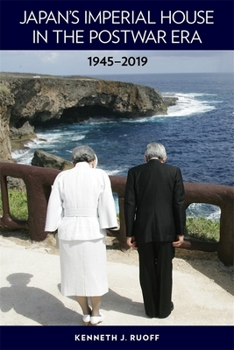Japan's Imperial House in the Postwar Era, 1945-2019
(Book #432 in the Harvard East Asian Monographs Series)
Select Format
Select Condition 
Book Overview
With the ascension of a new emperor and the dawn of the Reiwa Era, Kenneth J. Ruoff has expanded upon and updated The People's Emperor, his study of the monarchy's role as a political, societal, and cultural institution in contemporary Japan. Many Japanese continue to define the nation's identity through the imperial house, making it a window into Japan's postwar history. Ruoff begins by examining the reform of the monarchy during the US occupation and then turns to its evolution since the Japanese regained the power to shape it. To understand the monarchy's function in contemporary Japan, the author analyzes issues such as the role of individual emperors in shaping the institution, the intersection of the monarchy with politics, the emperor's and the nation's responsibility for the war, nationalistic movements in support of the monarchy, and the remaking of the once-sacrosanct throne into a "people's imperial house" embedded in the postwar culture of democracy. Finally, Ruoff examines recent developments, including the abdication of Emperor Akihito and the heir crisis, which have brought to the forefront the fragility of the imperial line under the current legal system, leading to calls for reform.
Format:Paperback
Language:English
ISBN:0674244486
ISBN13:9780674244481
Release Date:February 2020
Publisher:Harvard University Press
Length:444 Pages
Weight:1.65 lbs.
Dimensions:1.2" x 6.0" x 9.0"
Customer Reviews
0 rating





